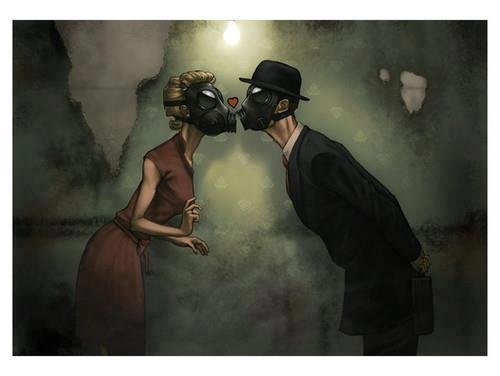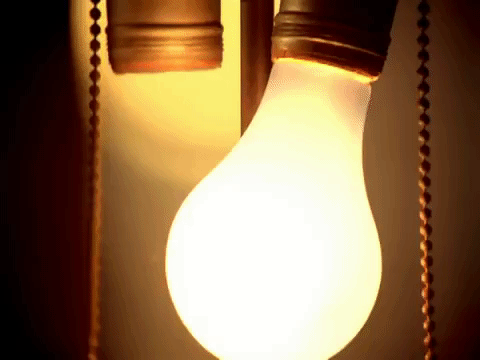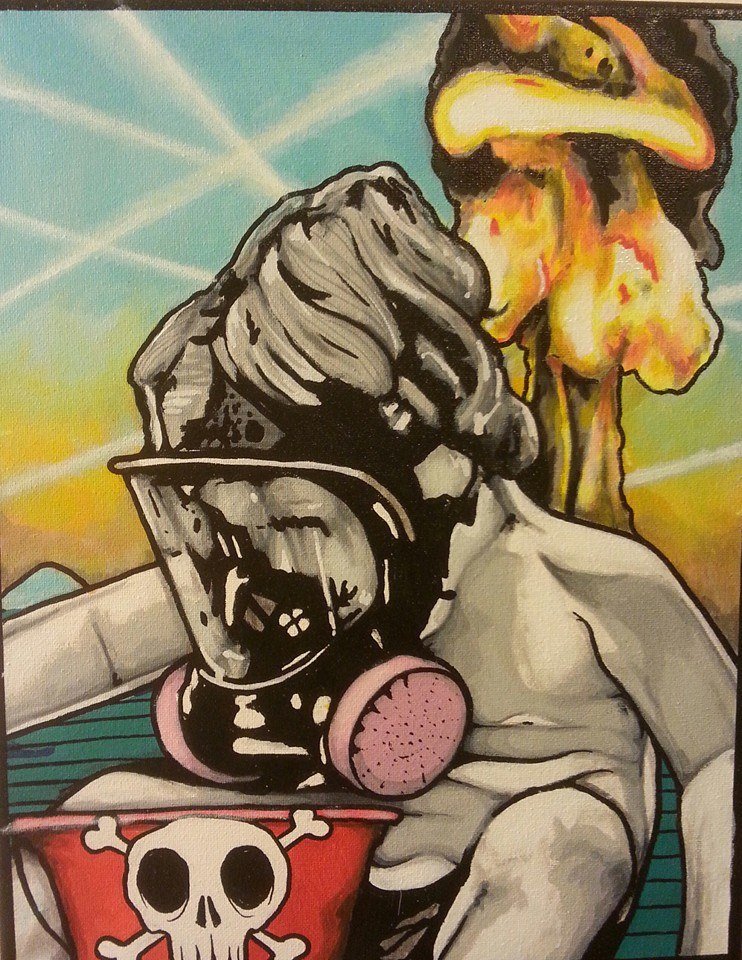
I study counseling psychology. I learn to use skills that help people deal with personal issues, trauma, mental issues, and stress. But saying I "help" someone is actually a misnomer.
In reality, I empathize with an individual; I leverage the desire to connect with another human. I do this to show a person that they possess their own ability to cope with the stressors of life. In other words, I help them help themselves. My relationship with a client is what the counseling profession cleverly refers to as the "therapeutic alliance."
The therapeutic alliance states that a counselor joins with a client and together they form a bond. They enter into an emotional rapport, which accounts for any healing that takes place. Current research in counseling states that the client and therapist bond is what contributes to positive outcomes. This is the open secret of all therapy. Healing occurs because client and counselor share an authentic connection
Laurie Meyers, writing for Counseling Today, confirmed the importance of the therapeutic alliance:
In 2001, a comprehensive research summary published in the journal Psychotherapy found that a strong therapeutic alliance was more closely correlated with positive client outcomes than any specific treatment interventions.This psychotherapeutic idea does not really come as a surprise, because 50 years of research has fleshed out the truth. The therapeutic alliance has been shown to work based on evidence.
I invoke this idea of the therapeutic relationship, because my hope is to reconcile counseling insights and psychotherapy with anarchist political philosophy. Counseling psychology, in my estimation, has unveiled what it is that humans seek most in life: emotionally fulfilling relationships and non-coercion in their interactions.

A Softer Interpretation of Anarchism
I believe the aforesaid truths of therapy and counseling can be applied to voluntaryist thinking for the creation of a new kind of anarchistic philosophy as well as community.
I call it relationalism. It is the philosophy that promotes absence of rulers and total freedom through relationships and social healing, rather than through the traditional routes of argumentation, persuasion, or economic theorizing (although the philosophy is not opposed to any of the traditional vectors of anarchism, as convincing people of this philosophy will likely also require argumentation).
Myself and others have also referred to relationalism as "soft anarchism," "therapeutic voluntaryism," or "anarcho-relationalism." I am certain that more names for this particular philosophy will arise as others begin to discuss it and tease apart all the implications.
There are three primary thought processes or underlying assumptions behind relationalism as an emotional framework for freedom.
- Current conceptions of anarchism have been hyper focused on the LEM Axis. That is, they are geared toward solving Logical, Economic, and Moral problems of society and government. They are embedded in an echo chamber where buzz words like nonaggression principle, property, and self-ownership dominate cultural language. Thus, relationalist anarchism is a new formulation that looks at other, softer determinants for building an anarchist society, and it attempts to move beyond fashionable memes and tropes.
- The soft interpretation of anarchism suggests that humanity's emotional and relational closeness acts as a prerequisite for voluntaryism, anarcho-capitalism, and many other non-coercive social arrangements. In other words, if people are attuned to each others feelings, there is less of an opportunity for violence and aggression to erupt. This is the application of the therapeutic alliance to society-at-large for building a freer, more psychologically stable world.
- In order to build a social order based on logical, moral, or economic truths, humans must first grapple with their emotional worlds and how they relate and interact with all people. They must learn to heal each other through being together and uniting, in much the same way that a counselor helps a client get better through their mutually agreed upon alliance. In this sense, the philosophy of relationalism sees the anarchist as a social healer that creates communities and nurtures love.

The Relationalist Ethic
Normally, people do not feel the same sense of empathy, connection, and closeness to people they do not know. Relationalists, however, see everyone as part of a ever-widening and interrelated socio-emotional system. Thus, therapeutic anarchists seek to treat everyone as if they were able to make authentic, loving contact.
In the spirit of the counselor or therapist, the relationalist wants to join with others and form an alliance. Relationalists see rapport as a mainstay of culture and they attempt to apply it everywhere as they walk the world.
But for this to occur, relationalists must adopt a single and simple tenet that guides their interaction with others. This gut level concept is called the relationalist ethic.
- The ethic states that the reason soft anarchists attempt to achieve a relationally-focused community is because shared feelings, empathetic connections, and closeness are always antithetical to violence. They are different neurological states. They are binary mental positions. They are opposites. Empathy and love cannot exist in the human mind at the same time as violence and aggression. Therefore, the stronger the culture of relationalism, the less violent and more anarchic it becomes. This assumption or theory is based on evidence gathered in psychotherapy research, and the hope is that it will remain intact on a socio-global scale.
"Love is the missing factor; there is a lack of affection, of warmth in relationship; and because we lack that love, that tenderness, that generosity, that mercy in relationship, we escape into mass action, which produces further confusion, further misery."However, this is not to say that every person wants to accept loving connections with strangers, but the relationalist contends that if people choose not to accept unknown others, they may in turn jeopardize their own relationships. It means that entities like government may crop up and hurt all relationships because people do not see other humans as loving entities in themselves. Simply speaking, government is the result of people's lack of relational focus.
As an aside, this position is not to suggest that relationalism is a Utopian agenda. It is just to say that if empathy is accepted as the cornerstone of a healthy and less violent society, it should be a component of culture. Surely, violence will still manifest in society as people are imperfect, but this situation is worsened by governmental destruction of relationships.
But why exactly do relationalists need to even worry about government? Krishnamurti disliked all politics and thought change could occur without looking at "political" cures. Why do relationalists claim to be anarchists? Can't they just promote empathy and love and be done with it?

The Psychological Problem of Statism and Relationship Desecration
To be sure, the aim of the relationalist is to build an anarchist, but emotionally oriented society. As the relationalist ethic states,soft anarchism wants to achieve total freedom from rulers and authority because these ideas conflict with the concepts of love and sensual union.
A truly empathetic society cannot exist so long as authority and government loom over society and interfere in human interaction. It cannot happen because governments are entities that use violent aggression to sway the masses of people to behave in certain ways.
It is this mentality that thwarts the possibility of having a truly love-based culture. Relationalism is thus expressed in anarchism because governments naturally destroy interpersonal connections.
Here are several examples of how government and the political classes prevent and dissuade people from forming social therapeutic alliances. I could provide hundreds of examples, but for the purpose of this essay, four will suffice.
- The governmental institution of police removes the possibility of empathic love from the whole population by providing society with aggressive force and hateful authoritarianism. The mere presence of police puts people in a state fight or flight, which tends to erode the empathy circuitry in people's brains. This is especially true if it causes increased stress hormones to flood the body. Policing is likely another symptom of the poor relationship systems and interactions that exists in society-at-large.
- The drug war is a political edict that by its nature tears apart families and ruins stable relationships. Whenever a loved one is kidnapped by police enforcers, it destroys the relationship between "government" and that person, and it also undermines that person's ability to take care of their family, which tarnishes the overall attachment in that family. In addition, if most family members agree with the State that their own loved one should be kidnapped, extorted, and caged, it further divides that family along ideological lines. This situation is wholly antithetical to the relationalist perspective, and it applies to all members of society, not just the family system.
- One of the most hideous examples of government's destroying relationships and undermining compassion is that of the Child Protective Services. This institution thrives off of its ability to break up families and destroy closeness among family members. It is in this anti-family atmosphere created by government that truly stable and caring relationships cannot be nurtured and continued. As a disclaimer, it is certainly true that some children could actually need to be taken out of abusive families that already have horrible relational interactions, but the State and these kinds on institutions only exacerbate relational problems within the family environment.
- The military is probably one of the most destructive institutions for the development of interpersonal and empathetic connections between people. Anyone who joins the military has their ability to feel the pain of another human systematically excised in boot camp. The only time a soldiers feelings return is when they come back from the war with emotional or moral injuries psychiatrists refer to as PTSD. In order to continuously heal social relations, the standing military in all of its manifestations must be abolished.
The evidence for relationship desecration is clear if one merely looks at the psychological research on what authority does to people's ability to connect with others. In other words, the concept of authority blocks people's feeling capability. Stanley Milgram, who conducted the famous experiments on obedience to authority, elaborated on this concept:
"Ordinary people, simply doing their jobs, and without any particular hostility on their part, can become agents in a terrible destructive process. Moreover, even when the destructive effects of their work become patently clear, and they are asked to carry out actions incompatible with fundamental standards of morality, relatively few people have the resources needed to resist authority.”In relationalist terms, people can't feel with the person they are hurting; they cannot empathize and connect. These are the reasons why relationalists must promote not only love and interpersonal interaction society, but also abolition of government and authority for the purpose of healing society and creating an environment that nurtures empathy rather than destruction.

Additional Thoughts on Relationalism
Relationalism hinges on love and human attachment. As a philosophy it is contingent on people’s desire to be with other people and form relationships. In other words, healthy human connections necessitate absolute freedom.
In this light, relationalism is not a detached model for new sociopolitical arrangements, nor a dry run of endless debates and objective presentations. It is not a strictly cognitive exercise. Instead, it is a psychological expression or aesthetic that implores people to create loving and harmonious relationships, without the desire for coercion to undermine that relationship.
It is also not only a philosophy. It is a process or a dialogue. It was what philosopher Martin Buber called the “I-Thou” connection. It is a heart-level instinct based on human psychology. This acknowledgement of the feeling vectors of anarchism represents what the relationalist stands for.
In addition, Relationalism is not an appeal to emotion from a logically fallacious sense, nor a suggestion that people get carried away with their emotion and forget higher brain functioning. It is only to say that focus of anarchistic interactions should be hinged on dialogue and rapport. It is literally the idea that we can exercise rational faculties but also stay in sync with our emotions and attachment to our fellow humans.
As of now, to my knowledge, the therapeutic findings of psychotherapy have not been applied to anarchist political philosophy nor integrated with any decency. Therefore, I hope this articulation will help others in the relationalist community continue to build these ideas so that we may eventually dissolve the State apparatus and learn to love each other with full integrity and the whole strength of our humanity.
A friend and fellow relationalist of mine, Gordon Peters, expressed what soft anarchism for the community could look like in these beautiful words:
The community facilitates a healthy physical, spiritual, and mental climate for all. The community is open to all services, as individuals are led to provide them. The community understands that coercing an Individual into unnatural service will harm the health of that individual and the health of the entire community. The community arcs towards simplicity and common sense. The rest is celebration.

Artwork by Darby Krow
Thank you @sterlinluxan for a great read, even though I primarily believe in a larger spectrum rather than the binary good vs evil, you have introduced me to some new perspectives to bridge previous understandings and ideas. I am definitely going to follow your thoughts in this realm of things.
Really enjoyed reading. Bookmarked do I can read again. Relationalism is something I've never heard of before but a lot if what you wrote resonated with me. Look forward to future posts on the subject. Upvoted & resteemed
Incredible post. I agree about what you had to say about the military. I have a friend that was in the military, and even though its been more than 5 years since he was in the army, he still has server PTSD. He has trouble connecting with others and often feels empty.
I never looked at it that way, this is a very interesting post. There were things I had a hard time to understand, meaby because of the languagebarriere and the choice of fieldwords but yeah very intersting discussing. When i read it I start wondering if this kind of stuff reaches instances who can make Leaders anticipate on this knowledge. I for sure want us as people to grow above all violant and emotional 'deseases', and sorry for my choice of word but it doesnt fit in a race who has the potential to become an überrace. Thanks for your efforts, I hope lots of people can benifit from this. Well done!
@sterlinluxan this is a well written article for those who have the brain to understand it and cherish its importance. Thanks for sharing
That was a bit challenging for me to get through but there were a few times when I felt excited by what you said.
"Simply speaking, government is the result of people's lack of relational focus"
Totally! We don't trust each other or in humanity in general so we need an intermediary, we put our faith in a "necessary evil". One thing I may not have in common with all the voluntarinists (I'm still new to this concept) is... what about commerce? I see it as being the same. The value of currency is also tied to the trust people put in it. That is also trust That is there because we aren't putting the trust in each other. The culture of money and how it's used kind of impede us from truly trusting in each other.
Excellent post. Commenting so I can tag in a friend, @mattclarke : Relevant to your interests.
Thanks mate. Reading now.
I agree on some of the thing highlighted in the article related to people´s abuse in certain situations, but changing the scenario and the play won´t change the character´s problem. I do believe human nature has a flaw and that is reflected in various actions, thoughts, deviations and twisted thinking. But I cannot exclude myself nor others from this reality, I do want to think of a better world where "they" don´t rule over "us" but that too is part of all of us, we have controlling tendencies, to a smaller or larger scale, towards one and other. Just by the fact that "we" think different from "them" mean there is a difference of thinking, a division, there will always be a difference of thinking, that makes us unique, but at the same time that makes things very complicated if there is no order. We talk about the ideal world, but what to do if we all have a different idea of where this world has to advance to? We don´t want and can´t contradict others(we respect them and try to love them) but obviously there is no unity of thinking, we will finish by breaking this world apart trying to get it to different directions. Well, it has always been similar to today, we just have to read some history and draw our conclusions, the individual being in everyone of us has a flaw, and until we don´t recognize it we won´t stand a chance in advancing.
@hegetiby I think you are absolutely right how a system switch would not just change the characters to fit it. That takes time, patience, and a realization that the problem cannot be solved with a binary solution. "With us or Against Us" does not work. I agree with @sterlinluxan in that, empathy and love cannot exist in the human mind at the same time as violence and aggression. However, I also believe that at the same moment in time as a human mind is in either state another human mind can be in the opposite. Either state breaks the binary down further, aggression as a scare tactic in self defense, or aggression with the intent to take, harm, gain control. One could argue that either is still aggression, but if the intent and results vary, should their position on the spectrum be the same? If you expand that further and overlay it on the world you create just that, 7 billion dots on a massive spectrum between extremes of what ever idea. For two people to agree 100% in concurrence to the millions of ideas out there is virtually impossible.
Binary just creates a cycle, giving those at extremes push and pull power every so often that is damaging to the whole. Healing the extremes and helping them come a bit closer to the center of the spectrum still allows for differences of ideas but it lessens the disruption caused by the extreme fringes. It is not a binary "We can't contradict others" it's to what extremes do we do so and how do we go about it. It cannot just be a switch into "no order" it needs to be a slow and patient progression towards a denser core while shedding authority bit by bit until the spectrum becomes the right balance. So rather than finding a way to move everyone to one side, the question becomes how do we heal others and expand our communal awareness and understanding without sending them into a state of cognitive dissonance. The rest I believe will naturally come together.
Great article I follow you
It's social for of contractarianism. I'd rather take contrarianism, Hobbes was right in that respect.
I think we have such a propensity to love, connect and cooperate with others, it has to be important. Rapport is it's foundation - a necessity for proper communication. Communication can only occur between equals. Rapport dissolves power and other boundaries. It enables us to hear and be heard.
Thanks for the great article.
Well said. I think this is what we're attempting to embody in Anarchapulco 24/7/365. There's got to be somewhere, anyone can point to as an example for everyone else to see... it's possible.
Amazing post. I agree 100% about what you said.
You are a great writer.
Congratulations! Upvote and resteem :)
great concept and I like the term
relationalismyou are coining here!I do believe that an approach like this can succeed from the bottom up, eroding socioeconomic structures under the governmental umbrella by replacing the individual's focus on profit and lawfulness with a focus on human relationships.
Where other anarchist Utopias fail to convince (me), as they seem impossible to achieve without undergoing a destructive process to dissolve the state, this appears to be achievable... and maybe the process has already started!
relationalism is an awesome concept and i reckon your doing it well building a friendship slowly with me , i notice your giving my posts an upvote and so i come and check out who you are ....so soon we will be friends -David
Wow, I did not even read who the author was until I was done. Hi Sterlin, I follow your channel on youtube. I am really glad to see you here on Steemit. As always you are an exceptional writer and thinker. I have now followed you here. Keep Steeming ahead!
You are very intelligent and a great writer.
Honestly I find ur style a bit wordy for me but I highly respect your work and agree with you on fundamentals.
Thanks for all you do for helping the world heal.
Keep up the great work~*~
My hundred closest friends and family don't need to be governed, it's only strangers who can't be trusted.
The power of nurturance! These are ideas I've toyed with before, but had never heard the concepts framed as relationism or soft anarchism. Packages everything beautifully. Keep going man - your work is inspiring.